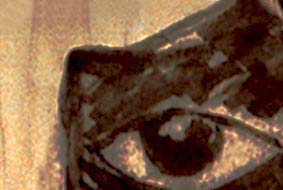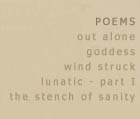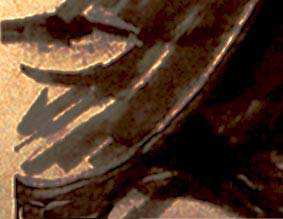I
was shooting for the film ‘Ankahi’, when I
decided to visit a mental hospital in order to study for
my role. I got to see the women at close quarters. I remember
when I came out of those premises I was literally sapped
of all energy. I felt as if I had taken a great beating.
The four hours that I spent inside the women’s ward
left me extremely perturbed and enervated. I started wondering
what it would be like to be left in there behind those
walls with no hope of getting out ever.
Later I went back to work on a film script. It was the
winter of 1993. The script was about an actress playing
a mentally disturbed woman and how the role affects her.
This time I lived with the women. Inside the ward. This
visit stretched to more than two weeks. It was a very
trying time for me. I got to watch the women at close
quarters, a few of them even intimately. Suddenly I was
confronted with so much pain; pain on the faces of women,
telling the stories of their lives.
‘Bhavuk
hoiyega, tabhi to paagal hoiyega na!’(`Only if you
are highly emotional can you become mad’)
One woman would keep saying that to me every time she
saw me.
I realized that the world of the mentally disturbed was
also the world of the starkly real… the world of
the hyper sensitive…. the world of the unabashedly
honest. I also realized that there were a lot of women
who were not ‘mad’ but were simply dumped
in there for life because no one wanted them back. Even
though they were medically treated and ‘cured’,
no one would ever come to take them home. They were discarded
by family and were doomed to spend the rest of their lives
within the walls of a mental asylum.
Two weeks of watching them, listening to them, talking
to them changed my perception of the world in a strange
irretrievable way.
An acute level of sensitivity, to a point where it becomes
addictive; to a point where, when you return to the sane
world you find everything shallow and a ‘put on’.
You start missing the realness of the asylum. Outside,
everyone says and does what they think they should be
saying and doing. But within the walls of a disturbed
ward there are no should-be-s. These people are on the
outside, what they truly feel within.
No masks. No façade.
I was able to put down a lot of the material into my script,
yet a few images still floated in my head; a few fragmented
images that inspired these poems.
I would like to share these words with you.
|






